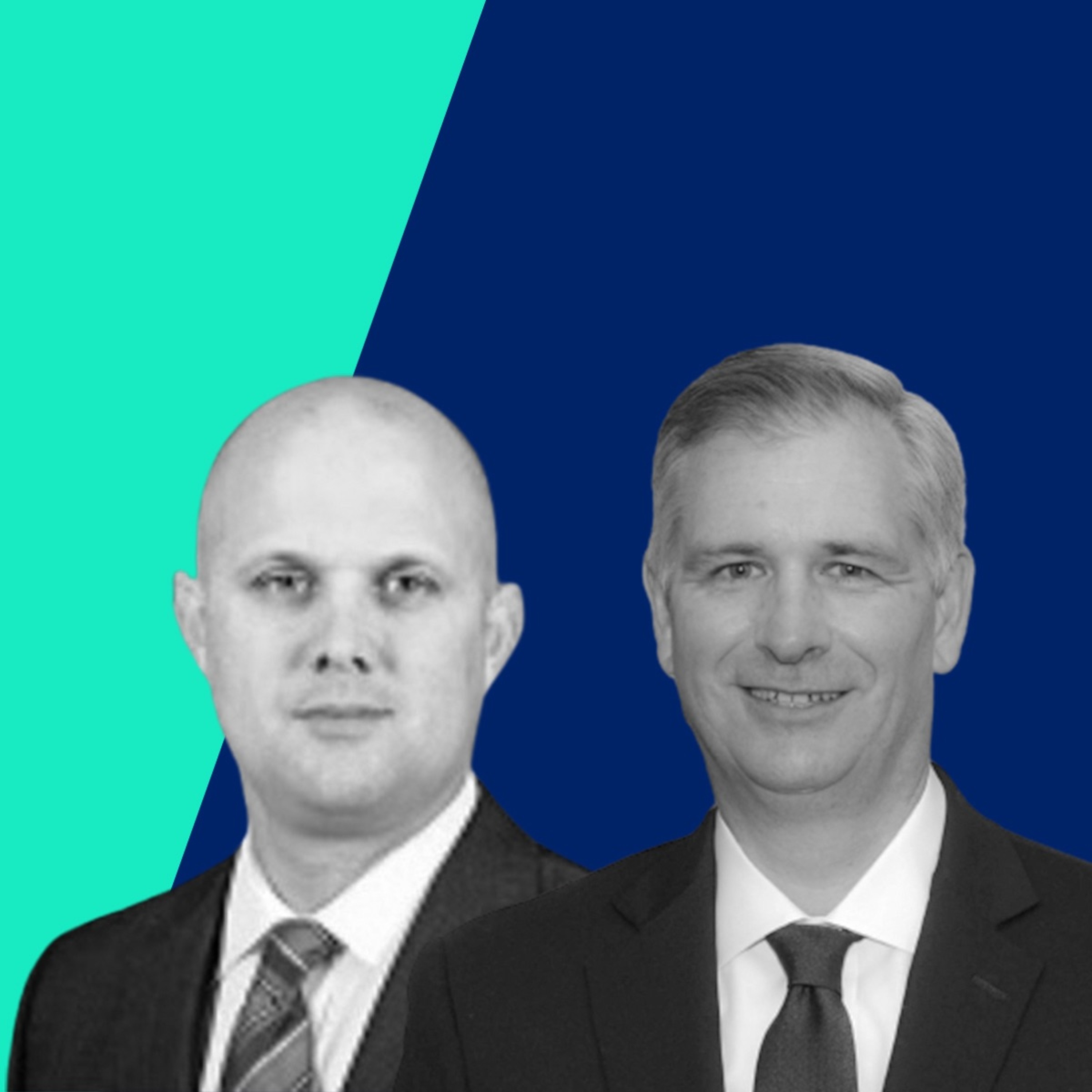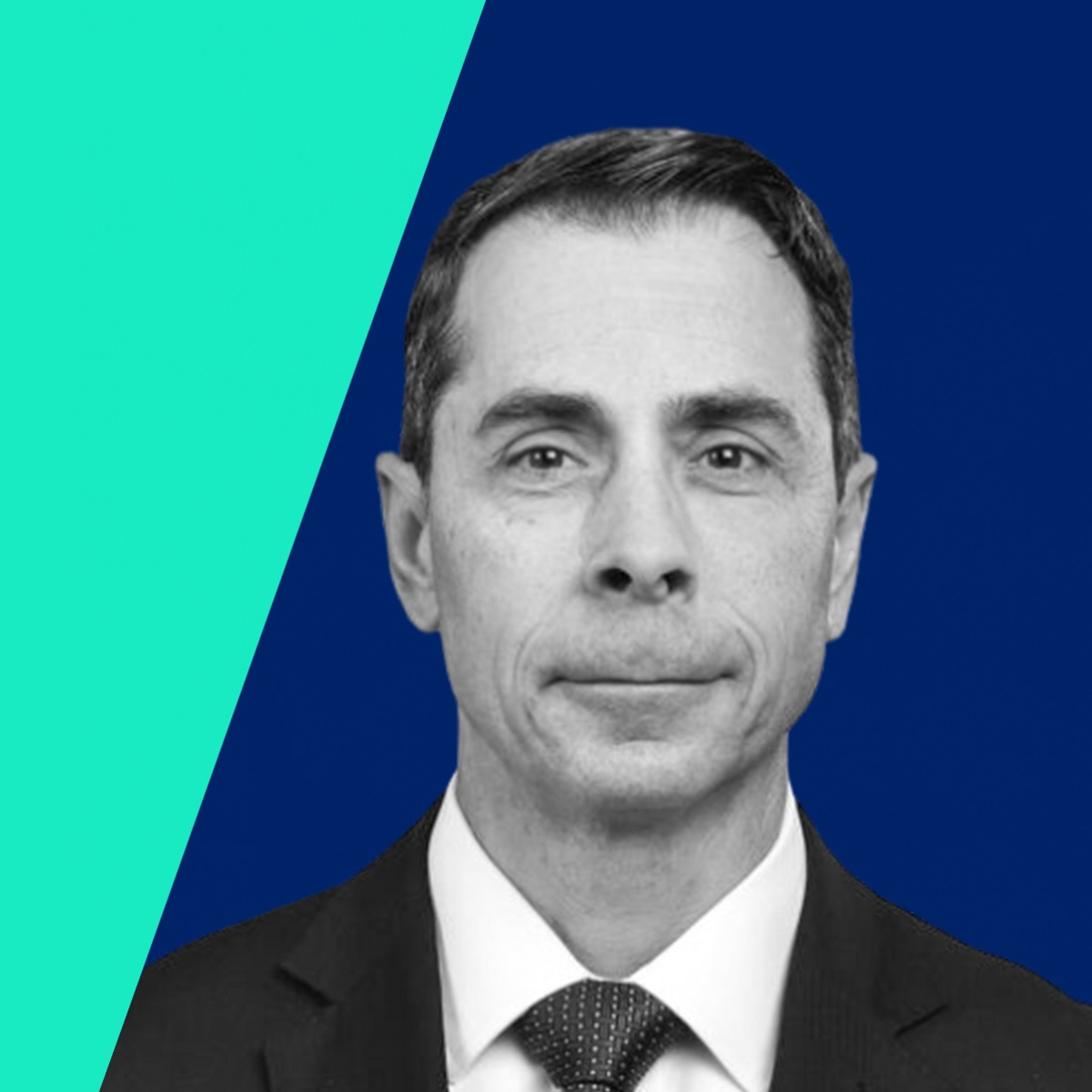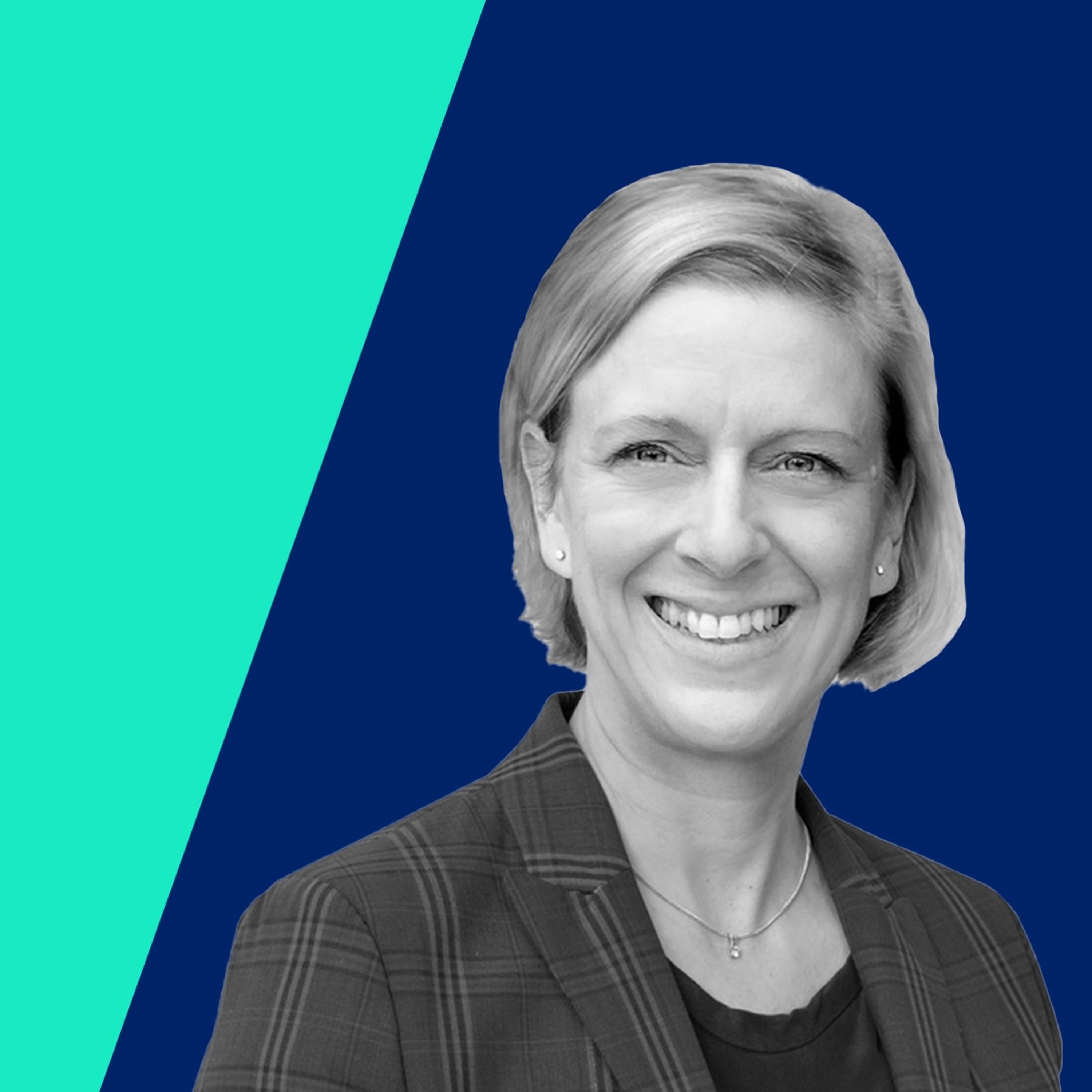Discover Financial Crime Matters
Financial Crime Matters

Financial Crime Matters
Author: Kieran Beer (ACAMS)
Subscribed: 441Played: 8,362Subscribe
Share
© All rights reserved
Description
In this podcast series, Kieran Beer (Chief Analyst at ACAMS) interviews the movers and shakers of the anti-financial crime world.
Listen for fast-paced conversations about the latest financial scandal to hit newsstands, and insights on trending Financial Crime topics.
Have something you’d like to hear covered? Email Kieran on podcasts@acams.org and tell us what matters to you. You can also follow Kieran on twitter www.twitter.com/kieranbeer
Subscribe so you don’t miss a single episode!
Listen for fast-paced conversations about the latest financial scandal to hit newsstands, and insights on trending Financial Crime topics.
Have something you’d like to hear covered? Email Kieran on podcasts@acams.org and tell us what matters to you. You can also follow Kieran on twitter www.twitter.com/kieranbeer
Subscribe so you don’t miss a single episode!
66 Episodes
Reverse
Kieran talks with Daniel Stipano, partner at Davis Polk & Wardwell and a 30-year veteran of the Office of the Comptroller of the Currency, about the unfolding requirements of the Corporate Transparency and AML Acts and their impact on law enforcement, and financial as well as non-financial institutions.
Dan also weighs in on the current court challenges to the CTA, particularly the recent Federal court ruling that declared it unconstitutional, what the Financial Crime Enforcement Network’s latest rule-makings mean, and what the long-awaited revised customer due diligence rule might look like.
----------
This Financial Crime Matters episode is sponsored by:
SymphonyAI - www.symphonyai.com
Kieran talks with ACAMS colleagues Justine Walker, head of global sanctions and AML risk, and Craig Timm, senior AML director, about the just released “ACAMS Global AFC Threats 2024.”
Drawing on 788 in-depth interactions with anti-financial crime professionals that inform the report, Justine and Craig identify the top ten threats currently facing the global AFC community, including budget cuts at financial institutions, the rise of cyber-enabled crime, the fallout from global conflict, and more.
While detailing the threats, Justine and Craig also talk about how anti-financial crime professionals are responding and how financial institutions can prepare for the threats in their own AFC efforts.
Read the Global AFC Threats Report 2024 here: https://www.acamstoday.org/global-afc-threats-report
----------
This Financial Crime Matters episode is sponsored by:
SymphonyAI - www.symphonyai.com
Kieran talks with Grant Rabenn, Director, Financial Crimes Legal at Coinbase.
Grant, a former federal prosecutor who handled some of the Department of Justice’s earliest crypto cases, discusses the promise of blockchain offerings, while acknowledging the industry’s need to work with regulators to stem their use in financial crime and money laundering.
During their conversation, Grant also touches some of the typologies for the illicit use of crypto currency that Coinbase encounters and the value of using a variety of blockchain forensics providers to trace crypto transactions.
Kieran talks with Zeke Faux, author of critically acclaimed “Number Go Up,” a comprehensive look at cryptocurrency, DeFi, and NFTs.
Zeke, an investigative reporter for Bloomberg BusinessWeek and Bloomberg News, discusses the trek he undertook to understand the boom and sometimes bust of various blockchain offerings. It was a journey that included a New York harbor NFT “ApeFest,” time in the Philippines with erstwhile Axis Infinity gamers who lost everything, a visit to a hotel in Cambodia attached to a “pig butchering” operation, and finally a marathon interview with Sam Bankman-Fried in the Bahamas days before his arrest.
Kieran talks with Kenneth Rijock, a former Miami-based lawyer who spent a decade as a bag man for drug-traffickers, investing their cash in accounts in the Caribbean and other offshore secrecy havens.
Ken describes some of the classic methods he used for laundering money and how law enforcement ultimately caught up with him. Following a prison term, Ken reinvented himself as an anti-money laundering advisor to law enforcement and subsequently the private sector. His story is also told in his book, “The Laundryman,” published in 2012.
Kieran talks with Carly Yoost, CEO and founder of the Child Rescue Coalition, which has created technology that enables law enforcement to identify instances of online child exploitation and locate its perpetrators.
During their discussion, Carly details the scope of online child exploitation and how the Coalition provides tools and training to law enforcement in 98 countries that has led to the arrest of over 14,700 child predators.
Kieran talks with James Barnacle, Chief of the Financial Crimes Section, Criminal Investigative Division of the FBI, and Christopher Soyez, Assistant Section Chief.
Jim and Chris discuss how the FBI works to recover the proceeds of scams on behalf of victims. They credit banks’ suspicious activity reports with being the primary catalyst for the bureau’s successful investigations into COVID-19 related scams, while also questioning a rising reluctance within the industry to aid customers in recovering the proceeds of other kinds of fraud.
Kieran talks with Kenneth A. Blanco, Chief Compliance Officer for the Financial Crimes Unit at Citigroup, who is also a former Financial Crimes Enforcement Network (FinCEN) director and before that held several senior roles within the U.S. Department of Justice.
Ken and Kieran discuss the challenges of being FinCEN’s chief during the COVID-19 epidemic and his perspective on the Anti-Money Laundering and Corporate Transparency Acts created and passed during his tenure.
Having now served within both the public and private sectors in the fight against financial crime, Ken also talks about what regulators, law enforcement and AFC professionals at financial institutions don’t understand about each other and the importance of them joining forces in public private partnerships.
Kieran talks with Seoyoung Kim, Associate Professor of Finance, Department Chair, at Santa Clara University, about the promise and possible perils of decentralized finance.
They discuss the recent implosion of several cryptocurrency exchanges and stablecoin minters and the great legal and judicial debate now raging over the regulation of digital assets.
In detailing some of the regulatory definitional claims now being adjudicated in U.S. courts, Seoyoung argues that the contested offerings are all analogous to financial instruments already regulated under the extant centralized finance system. As a result, she says that the proper application of rules from the centralized finance world are sufficient for oversight of DeFi.
In concluding, Seoyoung says that executing transactions on a publicly transparent blockchain, rather than on exchanges that facilitate money laundering and fraud via mixers and tumblers or privacy coins, is as essential as regulation to the ongoing integrity and promise of DeFI.
Kieran talks with Rick Small, Director Financial Crimes Program, at Truist, Dan Soto, Chief Compliance Officer, Ally Financial, and John Byrne, Executive Vice President, AML RightSource, about what’s been achieved in the past 40 years in the fight against financial crime and what challenges lay ahead.
In anticipation of receiving the “ACAMS Lifetime Achievement Award” at The Assembly in Las Vegas in October, Rick, Dan, and John discuss the successes and shortcomings of past Bank Secrecy Act regulation, as well as what’s good and what’s bad in the Anti-Money Laundering Act of 2020 and the Corporate Transparency Act.
Drawing on nearly 150 years of collective public and private sector experience fighting financial crime, the three old friends celebrate the rise of the AML community, the establishment of AFC as a profession and their association with ACAMS since its inception. In concluding, they offer advice to the next wave of anti-financial crime professionals who will face variations on old crime typologies and new scenarios connected to AI and other technologies adopted by industry, law enforcement and, sadly, savvy criminals.
----------
This Financial Crime Matters episode is sponsored by:
NICE Actimize - https://www.niceactimize.com
SAS -https://www.sas.com/fraud
Fenergo - https://www.fenergo.com
Kieran talks with Willem Schudel, Head of Department, Financial Crime Supervision (AML/TF) at the Central Bank of the Netherlands, live from The Assembly Europe, ACAMS’ annual conference, held this year in Dublin.
Willem discusses the Dutch Central Bank’s preparations for the coming of the European Union’s Anti-Money Laundering Authority, or AMLA, and the bank’s latest initiatives with regulated entities, including expectations they adopt technology that will identify criminal activity and reinforce the risked-based approach.
----------
This Financial Crime Matters episode is sponsored by:
NICE Actimize CDD-X - https://www.niceactimize.com
SAS - https://www.sas.com/fraud
Fenergo - https://www.fenergo.com
Kieran talks with Sarah Paquet, Director and CEO of the Financial Transaction Reports Analysis Centre, FINTRAC, live from ACAMS’ 27th annual moneylaundering.com conference in Hollywood, Florida.
Sarah discusses FINTRAC’s new role handling sanctions intelligence, managing the revolution in financial technology, and the financial intelligence unit’s ongoing commitment to expand and further internationalize Canada’s anti-financial crime public-private partnerships.
While detailing the initial success of the partnerships, including initiatives around human trafficking, online child exploitation and the fentanyl trade, the FINTRAC director says “we are definitely looking to bring [all] our partnerships to an international level” because FINTRAC should be seen not just as Canada’s FIU but as a trusted partner by global industry, law enforcement and the public.
----------
This Financial Crime Matters episode is sponsored by:
SymphonyAI - www.symphonyai.com
Kieran talks with Steve Schindler and Katie Wilson-Milne, partners at New York litigation and art law boutique Schindler Cohen & Hochman LLP about the state of financial crime in the global antiquities and art world.
Charting some of the civil and criminal actions that have resulted in a recent wave of repatriations of artworks and antiquities from the world’s major museums, noted galleries and private collections, Steve and Katie also discuss the Financial Crimes Enforcement Network’s (FinCEN) recent extension of anti-money laundering and counter-terror finance reporting responsibilities to antiquities dealers.
In laying out some of the red flags associated with illicit art and antiquities transactions Steve and Katie, who co-host “The Art Law Podcast,” also share their sense of where regulation of the two markets is headed in the United States and the world.
Kieran talks with Tristram Hicks, co-author with Nicholas Gilmour of “The War on Dirty Money,” an examination of the promise and short-comings of the current costly global effort to combat financial crime.
Drawing on his years as a New Scotland Yard detective superintendent and his role as an international criminal justice advisor on the operational effectiveness of anti-money laundering regimes, Tristram discusses why current anti-financial crime efforts are inadequate and how they can be improved.
Kieran talks with David Lewis, executive secretary of the Financial Action Task Force (FATF) from 2015 to 2022, about the FATF’s recent plenary that gray listed South Africa and Nigeria, formally suspended Russia from membership, and criticized governments throughout the world for lax oversight of cryptocurrency businesses.
Currently head of global AML at Kroll, David also weighs in on the United Kingdom’s and European Union’s latest AML efforts and shares his hope for greater transparency around corporate ownership drawing on his own experience as a senior official in the UK Treasury and the National Crime Agency.
Kieran talks with Oliver Bullough, award winning reporter for The Guardian, about his latest book, “Butler to the World: How Britain Became the Servant of Tycoons, Tax Dodgers, Kleptocrats and Criminals.”
During their conversation, Oliver details how Britain and its territories became a favored facilitator for many of the world’s kleptocrats, having transformed a financial system that once served the country’s global empire into one adept at “investing” illicit funds and serving the whims of transnational criminals. A Russian studies specialist, Oliver expresses guarded optimism about recent U.K. legislative and regulatory developments in response to the invasion of Ukraine that may be a step toward ending Britain’s role as butler to the world’s financial criminals.
Kieran talks with Dan Stipano, partner at Davis Polk, and Jamal El-Hindi, Counsel at Clifford Chance, about the Financial Crime Enforcement Network’s far reaching new rules for creating a U.S. beneficial ownership information (BOI) database for regulators and law enforcement, including who will be required to file personal identifying information and who will not have access to the registry.
Mandated by Congress to be operational by January 2024, Dan and Jamal also detail some of the essential questions that remain unanswered about the registry, and what the regulatory landscape will look like in 2023 and beyond.
Dan and Jamal come to the discussion with Kieran drawing on 50 collective years of service in the U.S. regulatory community, Dan having started in private practice after 30 years with the Office of the Comptroller of the Currency and Jamal after 20 years in the U.S. Treasury.
Kieran talks with Jonathan Dupont, a financial intelligence investigator for Western Union, and Tiffany Polyak, AFC Associate at ACAMS, about the growth in online sexual exploitation of children and the related rise in child sexual abuse materials on the Internet.
In exposing the scope of the online exploitation, Jonathan and Tiffany point to the more than 100 million reports of child sexual abuse material (CSAM) in Europe and the United States in 2021, with 19,000 victims being identified in the United States alone. Drawing from their work to create ACAMS’ free online anti-CSAM training program, Jonathan and Tiffany detail typologies and tools to identify financial transactions associated with the exploitation of children, with the ultimate aim of apprehending the perpetrators of this heinous crime.
“ACAMS CSAM Certificate” is part of a handful of training programs available as a public service. Visit https://www.acams.org/en/training/certificates/preventing-online-child-exploitation-with-financial-intelligence-an-overview to learn more.
Kieran talks with Bryan Smith, chief of the FBI’s Cybercriminal Section and a 20-year bureau veteran, about the growing threat of cybercrime to both individuals and large corporations.
Bryan discusses the destruction caused by cyber hacking, identity theft and old fashion fraud and he shares some of the successes the FBI has had in recovering stolen funds – whether in fiat currencies or crypto. While concerned about future cybercrime threats from criminals who are always innovating, Bryan also argues that there is much that can be done to prevent cybercrime and catch its perpetrators when law enforcement and the private sector work closely together.
*This Financial Crime Matters podcast is sponsored by Verafin. For nearly 20 years, Verafin has helped institutions like yours fight financial crime and keep pace with changing regulations. For more information on how Verafin can help your institution, visit https://verafin.com today.
Kieran talks with Nathan Lynch, author of 'The Lucky Laundry' - an expose of how Australia became the conduit for billons of dollars in laundered funds from the proceeds of drug trafficking, corruption, the sexual exploitation of children and other heinous crimes committed by transnational criminal organizations.
Nathan, Manager of Thomson Reuters Regulatory Intelligence, Asia-Pacific, details how the 'Lucky Country' (as Australians view their homeland) became the 'Lucky Laundry' undermining confidence in the nation’s largest financial institutions and government, and creating a still unmet outcry for stricter anti-money laundering measures from parliament.

























So interesting to hear from people with ´institutional memory’. The Patriot Act did drive things - like forfeiture - into law, but so sad that they had been waiting in the queue, disregarded, until a human tragedy (9/11) forced lawmakers into action.
Maybe a report on Guinness share-trading fraud BAE Systems weapons sales to Saudi Arabia Barclays emergency fundraising BAE Systems radar sale to Tanzania